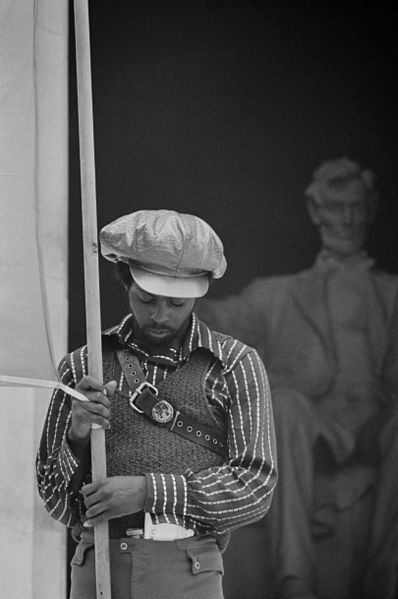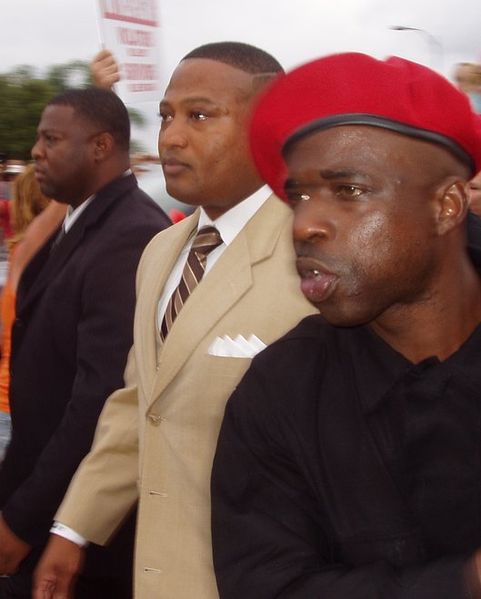The black power movement or black liberation movement was a branch or counterculture within the civil rights movement of the United States, reacting against its more moderate, mainstream, or incremental tendencies and motivated by a desire for safety and self-sufficiency that was not available inside redlined African American neighborhoods. Black power activists founded black-owned bookstores, food cooperatives, farms, media, printing presses, schools, clinics and ambulance services.
Black Panther at the Lincoln Memorial in Washington, June 1970
Black Panther Party members marching and carrying flags.
Protesters demanding the release of Angela Davis.
New Black Panther Party members marching in 2007
The civil rights movement was a social movement and campaign from 1954 to 1968 in the United States to abolish legalized racial segregation, discrimination, and disenfranchisement in the country. The movement had its origins in the Reconstruction era during the late 19th century and had its modern roots in the 1940s, although the movement made its largest legislative gains in the 1960s after years of direct actions and grassroots protests. The social movement's major nonviolent resistance and civil disobedience campaigns eventually secured new protections in federal law for the civil rights of all Americans.
The 1963 March on Washington participants and leaders marching from the Washington Monument to the Lincoln Memorial
13th Amendment in the National Archives, bearing the signature of Abraham Lincoln
The mob-style lynching of Will James, Cairo, Illinois, 1909
Lynching victim Will Brown, who was mutilated and burned during the Omaha, Nebraska race riot of 1919. Postcards and photographs of lynchings were popular souvenirs in the U.S.








